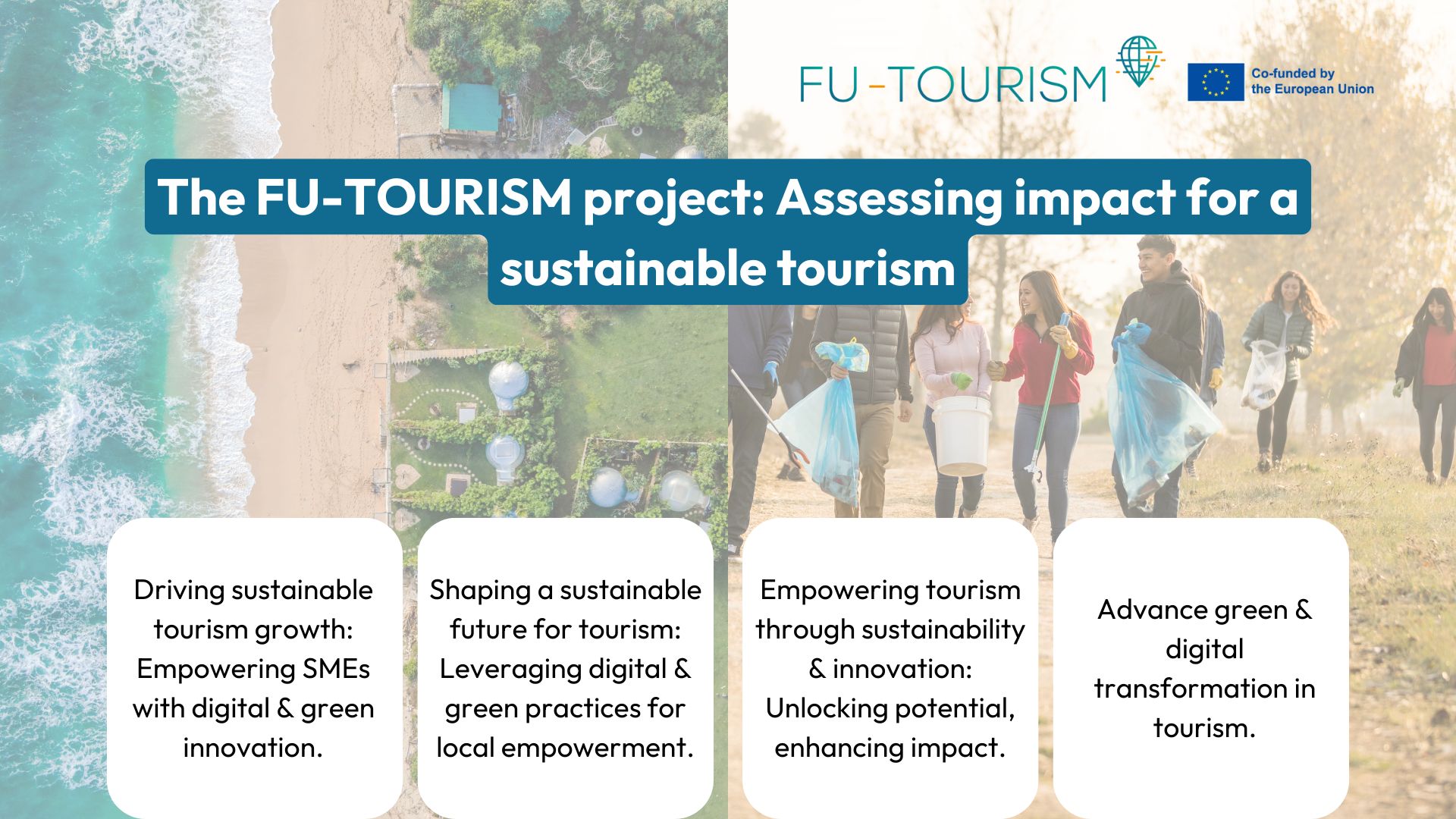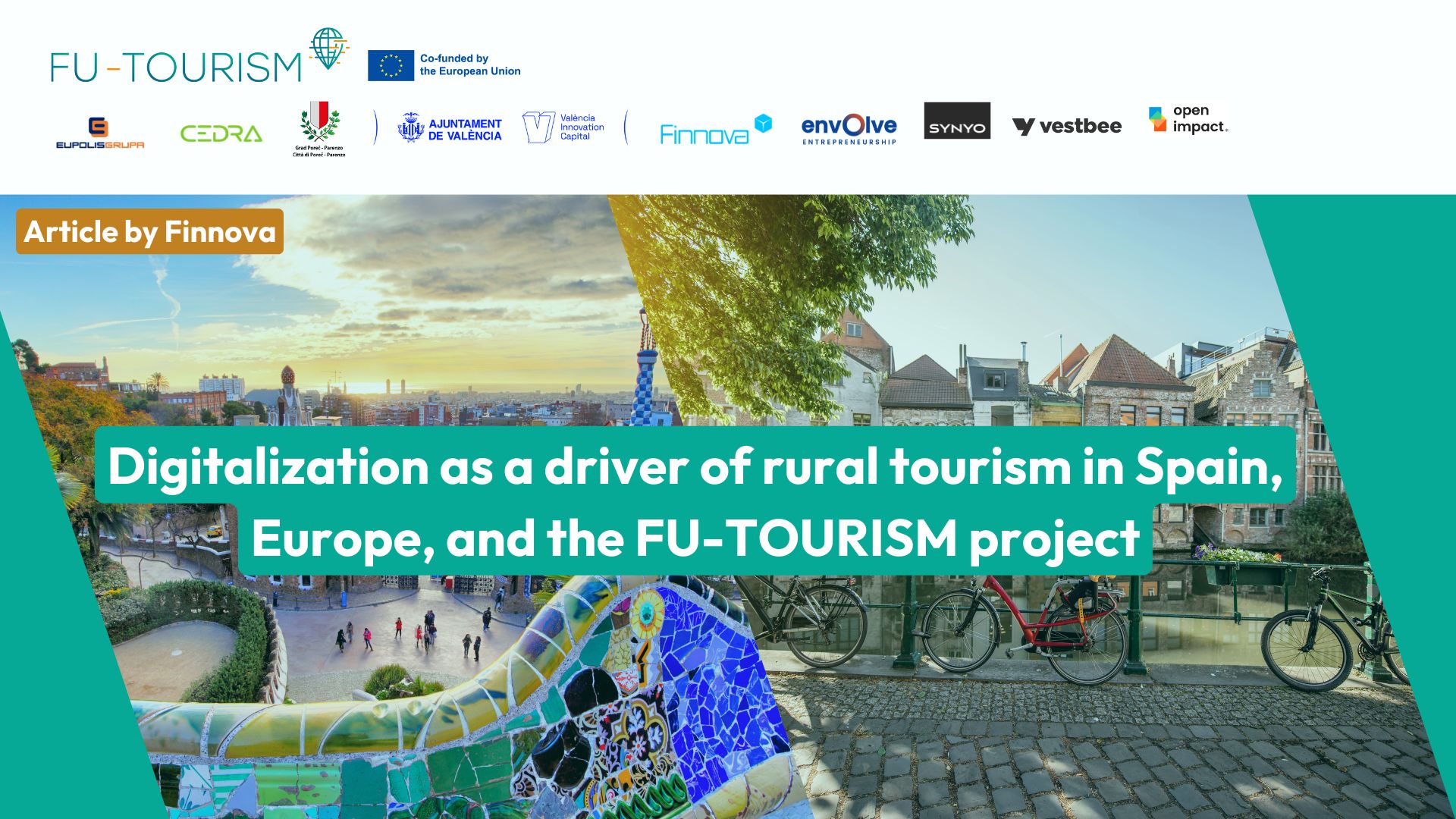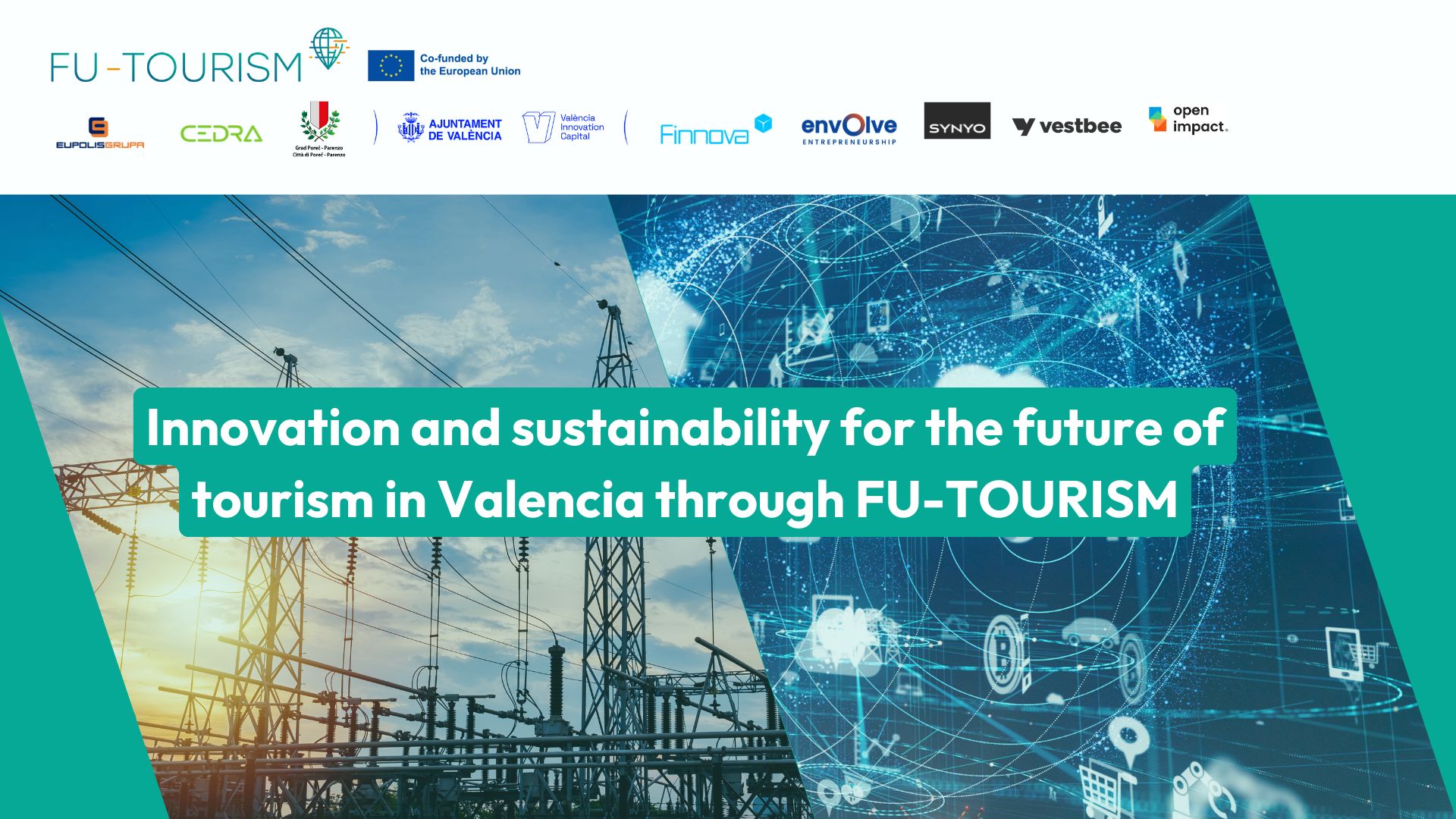
The FU TOURISM project: Assessing impact for a sustainable tourism
In recent years, the tourism industry has faced increasing demands for sustainable practices and digital innovation, essential for fostering resilience and long-term growth. For initiatives aimed at advancing these objectives—such as the FU-TOURISM project—impact measurement emerges as a critical tool. By assessing the effects of training and development programs, impact evaluation enables stakeholders to measure not only economic value but also social and environmental contributions, offering a holistic view of progress toward sustainability.
Within the FU-TOURISM project, impact assessment is applied to evaluate how SMEs benefit from specialized training in areas like digitalization, sustainable management, and market expansion. Using the Social Return on Investment (SROI) methodology, the project aims to measure the value created across multiple dimensions. This approach not only tracks economic growth but also highlights broader societal impacts, allowing for a complete understanding of the ways in which green and digital transformations influence the tourism ecosystem. Through such impact-oriented metrics, FU-TOURISM provides a model for integrating measurable, sustainable innovation in tourism, offering insights that guide decision-making and foster sustainable growth.
Understanding impact: definition and evolution
The concept of impact, particularly in social and environmental contexts, has evolved significantly over the past few decades. Originally, organizational success was often measured through economic performance alone, focusing on financial gains and profitability. However, as societal values shifted towards sustainable development, the understanding of “impact” broadened to encompass social, environmental, and governance dimensions. This multidimensional view recognizes that organizations generate value beyond monetary outcomes, affecting communities, ecosystems, and societal well-being.
Impact measurement, therefore, serves as a tool to capture this broader scope of value creation. Over time, several methodologies have been developed to assess impact, each catering to specific goals and fields. Among the foundational approaches are the Theory of Change, which outlines a structured framework to link activities with long-term outcomes, and the Social Return on Investment (SROI), which quantifies social and environmental benefits alongside economic returns. Such frameworks enable organizations to demonstrate accountability and enhance transparency, particularly in sectors like tourism, where sustainable practices and community engagement are increasingly prioritized. Moreover, these frameworks serve as essential tools for decision-makers, enabling them to maximize the impact of initiatives by thoroughly assessing and monitoring the value created.
In projects like FU-TOURISM, where the goal is to support the digital and green transition of SMEs, impact measurement allows for a clear understanding of how training and development programs contribute to sustainable growth. By assessing impact across economic, social, and environmental dimensions, stakeholders can make informed decisions, aligning their efforts with broader sustainable development goals and ensuring that the value generated reaches communities and ecosystems that rely on a resilient tourism industry.
Methodologies for measuring impact
The evaluation of social impact has become a key area of research and practice, with an ever-growing array of models and frameworks designed to capture value that extends beyond traditional financial metrics. According to a comprehensive literature review, there are currently 98 models of Social Impact Assessment (SIA) identified, each differing in scope, method, and application (Corvo et al., 2021). This diversity reflects the complexity and multi-dimensional nature of impact itself, which includes economic, social, and environmental aspects.
One of the most widely discussed and utilized methodologies is the Social Return on Investment (SROI). This approach seeks to quantify social and environmental outcomes in monetary terms to calculate the value created for each unit of investment. SROI follows a structured process that involves engaging stakeholders, mapping outcomes, and assigning financial proxies to measure change comprehensively. The methodology emphasizes transparency and materiality, ensuring that only relevant impacts are considered, and uses a detailed impact map to connect inputs, outputs, and long-term outcomes.

In the context of projects like FU-TOURISM, this methodology provides a comprehensive toolkit for assessing the impact of training and development programs on SMEs. By employing both qualitative and quantitative measures, it captures a holistic view of change, from immediate outputs to broader societal impacts. This structured approach enables stakeholders to evaluate the effectiveness of interventions and optimize strategies for sustainable growth in the tourism sector.
Application of SROI methodology in FU-TOURISM
The Social Return on Investment (SROI) methodology is being strategically applied within the FU-TOURISM project to evaluate the impact of training and development programs designed to support SMEs in their green and digital transformation. This approach is crucial for providing a comprehensive assessment of how project activities generate social, economic, and environmental value, aligning with the project’s overarching goals of promoting sustainable tourism practices.
SROI’s structured framework begins by identifying and engaging key stakeholders, such as participating SMEs, local communities, and industry experts. This engagement ensures that the outcomes measured are relevant and significant, reflecting the impact perceived by those directly and indirectly affected. By involving stakeholders throughout the process, SROI not only enhances the robustness of the analysis but also fosters a shared understanding of the project’s value.
The next phase involves mapping outcomes and assigning financial proxies to quantify these in monetary terms. This step translates complex social and environmental benefits into measurable financial values, enabling a more tangible understanding of the project’s impact.
Although the evaluation is still ongoing, the use of SROI is critical for several reasons. First, it provides a transparent and standardized way to measure and communicate the value generated, ensuring accountability to funders and stakeholders. Second, it helps to identify which aspects of the project deliver the greatest impact, guiding resource allocation and future project development. Finally, SROI’s emphasis on monetizing social value makes it easier to demonstrate the project’s broader contributions to society, reinforcing the importance of investing in sustainable and innovative practices in the tourism sector.
The preliminary analysis already suggests promising outcomes, such as enhanced digital capabilities and greater awareness of sustainability among SMEs. However, as the assessment continues, further data will be collected to refine the understanding of the project’s impact, ensuring that FU-TOURISM remains adaptive and effective in delivering long-term benefits.
Key findings and initial evidence from FU-TOURISM
Although the comprehensive Social Return on Investment (SROI) analysis for the FU-TOURISM project is yet to be completed, a contextual analysis has been conducted to identify key macroareas where the project is expected to have significant impact. This initial framework highlights the relevance of using a structured impact assessment methodology to understand and optimize the project’s contributions across various dimensions.
The macroareas of outcome identified through this contextual analysis include:
- Learning and capacity building: The project aims to enhance professional skills among tourism sector professionals and improve the internal business efficiency of SMEs. This involves developing digital competencies and management capabilities that enable better performance and adaptability.
- Economic growth and innovation: FU-TOURISM is expected to stimulate economic growth by fostering sustainable and innovative business models. Outcomes in this area include increased job opportunities, workplace mobility, and a higher capacity of SMEs to attract funding, supporting long-term business resilience.
- Networking: Strengthening networks and social relations among SMEs and other stakeholders is another anticipated outcome. By fostering collaboration and exchange, the project will contribute to a more interconnected and resilient tourism ecosystem.
- Sustainable communities: The promotion of sustainable tourism practices is central to FU-TOURISM’s mission. This macroarea encompasses outcomes such as increased accessibility in tourism destinations and the overall promotion of environmentally friendly behaviours among businesses and tourists.
- Heritage promotion: The project emphasizes the cultural significance of tourism by enhancing the promotion of cultural heritage. This includes raising awareness of the value of cultural assets and integrating heritage conservation into sustainable tourism strategies.
- Environment: FU-TOURISM seeks to foster environmental sustainability by promoting environmentally responsible behaviour and raising environmental awareness within the tourism sector. This involves encouraging practices that minimize ecological impact and support conservation efforts.
Understanding these macroareas helps frame the ongoing impact assessment and ensures that future analyses will systematically capture and monetize the value generated across these diverse outcomes. As the SROI evaluation progresses, it will provide essential insights to maximize the long-term benefits of the project, contributing to the digital and green transformation of the tourism industry.
In conclusion, the FU-TOURISM project stands at the forefront of promoting sustainable and digital transformation within the tourism sector. By leveraging the Social Return on Investment (SROI) methodology, the project not only commits to a transparent and comprehensive assessment of its impact but also sets a benchmark for future initiatives aimed at fostering resilience and innovation among SMEs. The SROI approach will ensure that the value created extends beyond immediate economic benefits, capturing the broader social and environmental changes that are essential for a thriving, future-proof tourism industry.
We invite all stakeholders—SMEs, industry professionals, policymakers, and anyone interested in advancing sustainable practices in tourism—to engage with the FU-TOURISM initiative. Explore more about our ongoing work, discover opportunities to collaborate, and stay informed about our latest findings. Visit our website and follow us on social media to join the conversation and be part of the movement driving the future of sustainable tourism.




